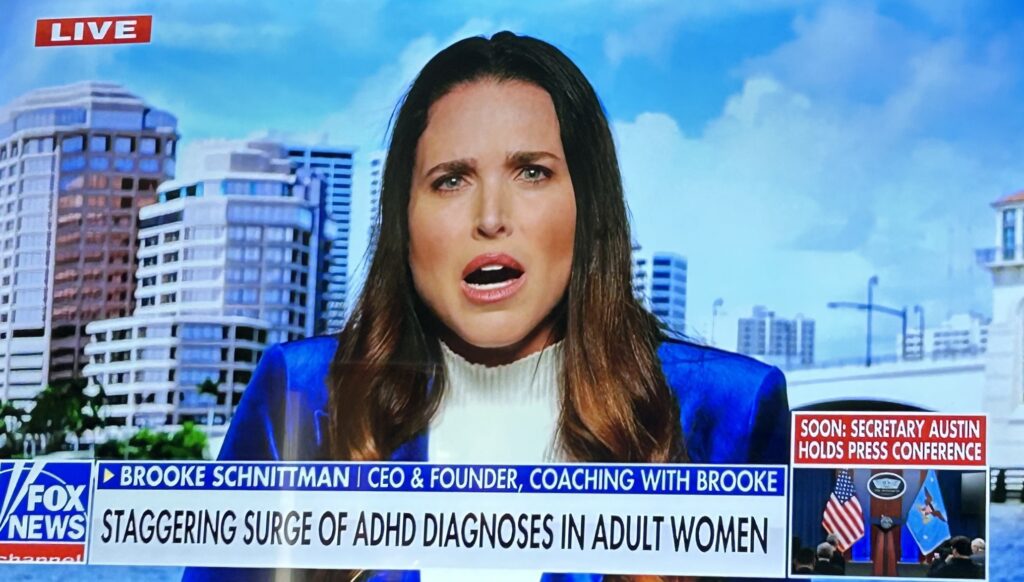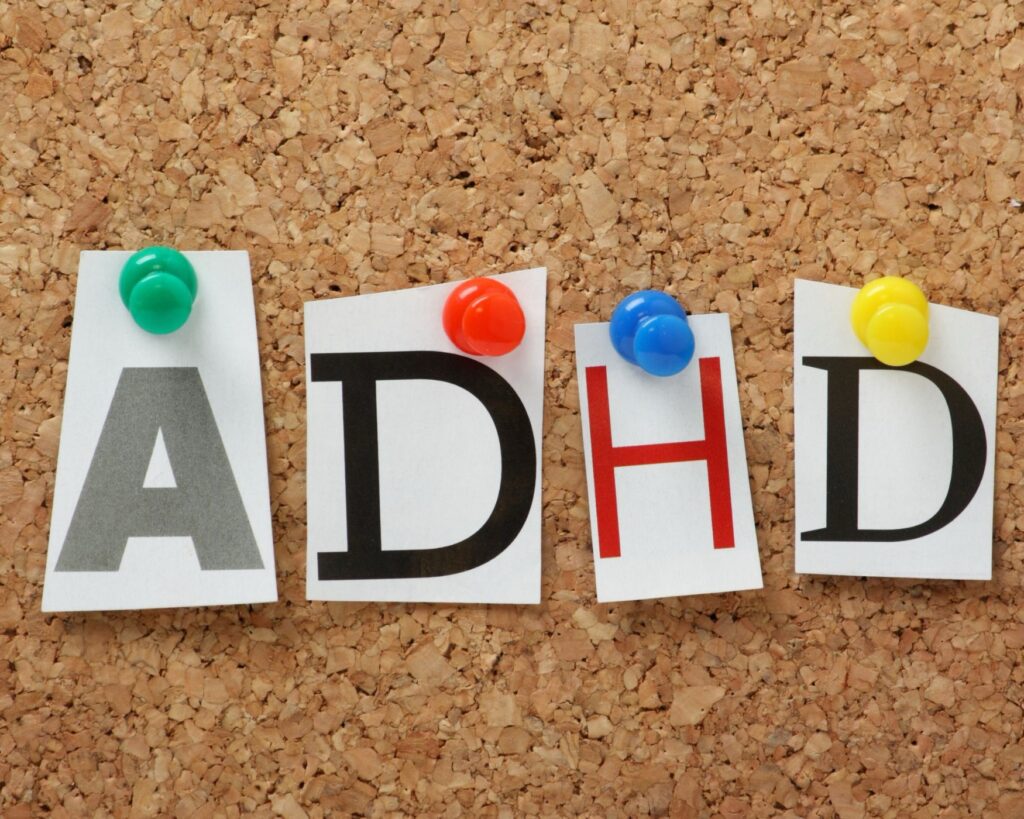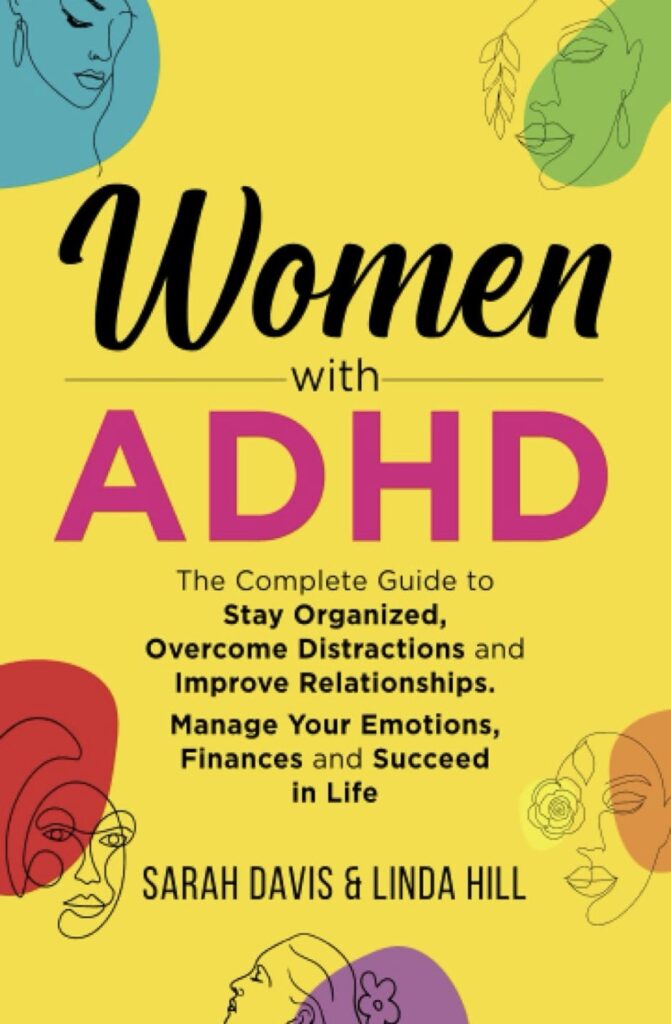In recent years, the medical community and society at large have witnessed a staggering surge in the diagnosis of Attention Deficit Hyperactivity Disorder (ADHD) among a demographic historically overlooked in this context: adult women. Traditionally, ADHD has been predominantly associated with children, particularly boys, under the presumption that it manifests mainly through hyperactivity and disruptive behavior. This stereotype has long influenced both diagnosis and understanding of the disorder, sidelining those whose symptoms may not align with this narrow view.

The revelation of a significant increase in ADHD diagnoses among adult women marks a critical shift in how we perceive and approach this neurodevelopmental condition. This trend not only challenges preconceived notions about who ADHD affects but also sheds light on the broader, more nuanced spectrum of ADHD symptoms and presentations.
This article delves into the findings of a recent study highlighting this unprecedented rise, seeking to uncover the factors driving this increase and the profound implications it carries for individuals, healthcare systems, and society. By exploring the intersection of gender, mental health, and societal expectations, we aim to illuminate the hidden epidemic of undiagnosed ADHD in women and the crucial steps forward in addressing it.
The Study: A Closer Look
A groundbreaking study recently published in a leading medical journal has cast a spotlight on a long-overlooked demographic: adult women receiving ADHD diagnoses at an unprecedented rate. This study, conducted over several years and encompassing a diverse group of participants across various age groups, sought to understand the patterns and prevalence of ADHD diagnoses among adults, with a particular focus on women.
Methodology and Demographics
The researchers employed a comprehensive approach, analyzing health records from thousands of patients across multiple healthcare providers. The demographic spanned from young adults to seniors, ensuring a broad representation of the adult female population. Criteria for diagnosis followed the latest DSM guidelines, ensuring consistency and accuracy in identifying ADHD.
Key Findings
One of the most striking outcomes of the study was the sharp increase in ADHD diagnoses among adult women, which showed a surge of over 50% in the past decade. This finding starkly contrasts with the relatively stable diagnosis rates observed in male adults and children over the same period.
The data suggests a growing recognition of ADHD symptoms that manifest differently in women, often characterized by inattention, disorganization, and emotional dysregulation, rather than the overt hyperactivity more commonly seen in boys. This shift in understanding has likely contributed to the rise in diagnoses, as more women see their experiences reflected in the broader ADHD narrative and seek help.

Understanding the Surge
The dramatic increase in ADHD diagnoses among adult women can be attributed to several key factors that have evolved over recent years. These include changes in societal perceptions, improvements in healthcare accessibility, and a deeper understanding of ADHD’s manifestation in women.
Historical Context and Gender Biases
Historically, ADHD was perceived primarily as a disorder affecting hyperactive young boys, leading to underdiagnosis in girls and women whose symptoms did not fit this narrow profile. Women are often more likely to exhibit inattentive symptoms, such as difficulty focusing, disorganization, and being easily distracted, which can be more subtle and less disruptive than the hyperactive and impulsive behaviors more commonly seen in diagnosed boys.
Awareness and Acceptance
Increased awareness and acceptance of ADHD in adults, especially among healthcare professionals, have played a significant role in the surge of diagnoses. As the understanding of how ADHD manifests in women grows, so does the recognition of its impact on their personal and professional lives. This heightened awareness has encouraged more women to seek diagnosis and support.
Healthcare Accessibility
Improvements in healthcare access and the destigmatization of mental health issues have also contributed to more women being diagnosed. With mental health becoming a more prominent part of public discourse, women are more empowered to discuss their symptoms and pursue ADHD assessments.
Implications of the Diagnosis Surge
The increase in ADHD diagnoses among adult women has profound implications, not only for the individuals affected but also for healthcare systems and societal perceptions of mental health.
Personal Impact
For many women, receiving an ADHD diagnosis in adulthood can be life-changing, offering an explanation for lifelong challenges and struggles. It can lead to better self-understanding, tailored treatment plans, and improved quality of life. However, it can also bring challenges, including navigating stigma, adjusting to new treatments, and reevaluating personal and professional goals.
Healthcare System
This surge poses both opportunities and challenges for healthcare providers. It underscores the need for more ADHD specialists, resources for adult diagnosis and treatment, and training for healthcare professionals to recognize ADHD in women.
Societal Perception
The increasing diagnosis rates among adult women are changing societal perceptions of ADHD, highlighting it as a complex disorder that affects individuals across the lifespan, not just children. This shift is crucial for reducing stigma and encouraging a more inclusive understanding of neurodiversity.
Personal Stories: Voices of Adult Women with ADHD
The surge in ADHD diagnoses among adult women isn’t just a statistic; it’s a collection of personal journeys and revelations. Here are the stories of three women who were diagnosed with ADHD as adults, shedding light on the diverse experiences and challenges they faced.
Anna’s Story: Anna spent years struggling with organization and meeting deadlines, which she attributed to personal failure. Her diagnosis at 32 was a turning point, offering her a new lens through which to view her challenges and strengths.
Beth’s Story: For Beth, a mother of two, her diagnosis came after one of her children was diagnosed with ADHD. Recognizing similar patterns in herself led her to seek evaluation, bringing a sense of relief and understanding to her lifelong struggles with focus and impulsivity.
Cara’s Story: Cara, a successful attorney, battled with intense periods of hyperfocus and disorganization, affecting her career and personal life. Her diagnosis at 40 was a revelation, leading to strategies that harnessed her ADHD as a strength rather than a hindrance.
These stories underscore the transformative power of understanding and addressing ADHD, highlighting the importance of recognizing symptoms and seeking help.
Expert Insights: Unpacking the Study’s Implications
Leading healthcare professionals and researchers weigh in on the implications of the study, emphasizing the need for a shift in both clinical practice and societal attitudes towards ADHD in adult women.
Dr. Emily Roberts, a psychologist specializing in adult ADHD, notes, “The surge in diagnoses reflects a positive shift towards recognizing ADHD in women, who have historically been underdiagnosed. It’s crucial we continue to adapt our approaches to support them effectively.”
Professor Liam Johnson, a researcher in neurodiversity, adds, “This study is a wake-up call to the healthcare industry and society at large. ADHD in women has profound implications for our understanding of the disorder and highlights the need for gender-sensitive research and treatment strategies.”
The Broader Health Connection
Interestingly, the conversation around ADHD in adult women opens the door to exploring broader health connections, such as the intriguing link between respiratory health and oral health. This relationship, detailed in “The Connection Between Respiratory Health and Oral Health,” illustrates the complex interplay between different aspects of our health and underscores the importance of holistic healthcare approaches. Read more about the connection here.
Understanding these connections can be particularly relevant for individuals with ADHD, who may experience heightened sensitivity to health issues, including those related to respiratory and oral health. It highlights the importance of comprehensive care strategies that address the wide range of health challenges faced by those with ADHD.
Navigating Life with ADHD as an Adult Woman
Being diagnosed with ADHD as an adult woman unveils a path filled with both challenges and opportunities for personal growth. Empowering oneself with knowledge and practical strategies is key to turning ADHD into an asset rather than an obstacle.
Developing Effective Strategies
- Time Management and Organization: One of the cornerstones of managing ADHD symptoms effectively involves mastering time management and organizational skills. Tools such as planners and scheduling apps can be invaluable. For a comprehensive guide on staying organized, overcoming distractions, and improving relationships, consider the book “Women with ADHD: The Complete Guide to Stay Organized, Overcome Distractions, and Improve Relationships. Manage Your Emotions, Finances, and Succeed in Life.” This resource is tailored specifically for adult women navigating the complexities of ADHD and offers actionable advice and strategies. Find it on Amazon.
- Creating Structured Routines: Consistency and predictability can significantly reduce the daily stresses associated with ADHD. Developing structured routines for both personal and professional tasks can help streamline your day and reduce the chances of getting overwhelmed. Again, “Women with ADHD” provides insightful tips and routines designed to harness the strengths of ADHD to your advantage. It’s a must-read for those looking to improve their daily life and relationships, offering guidance on managing emotions, finances, and more. Check out the book here.
- Seeking Support: Building a support network, whether through therapy, support groups, or connections with others facing similar challenges, can provide invaluable encouragement and advice. Sharing experiences and strategies with others who understand can make the journey less isolating.
- Focusing on Health and Wellbeing: Regular exercise, a balanced diet, and sufficient sleep are particularly beneficial for managing ADHD symptoms. Engaging in activities that promote mindfulness, such as yoga or meditation, can also help improve focus and reduce impulsivity.
Leveraging Strengths
ADHD comes with its own set of challenges, but it also brings unique strengths such as creativity, resilience, and the ability to think outside the box. Recognizing and leveraging these strengths can lead to success in various aspects of life, including careers, relationships, and personal growth.

Looking Ahead: The Future of ADHD Support for Adult Women
The recent surge in ADHD diagnoses among adult women marks a pivotal moment in our understanding and approach to mental health. This trend not only challenges longstanding stereotypes but also opens new avenues for research, treatment, and support tailored to the unique needs of women. As we look to the future, a multidisciplinary approach that includes healthcare providers, researchers, educators, and policymakers will be crucial in shaping a more inclusive and supportive environment for women with ADHD.
Embracing Neurodiversity
Society’s growing acceptance of neurodiversity is a positive step toward recognizing and celebrating the unique strengths and perspectives of individuals with ADHD. By fostering an environment that values differences, we can unlock the potential of countless women who, with the right support, can thrive personally and professionally.
The Role of Healthcare and Research
The medical community has a vital role in continuing to refine diagnostic criteria and treatment options that reflect the diversity of ADHD presentations, particularly in women. Ongoing research into the gender-specific aspects of ADHD will be essential in developing more effective, personalized approaches to care.
- For Individuals: If you’ve been struggling with symptoms that may align with ADHD, consider seeking a professional evaluation. Remember, it’s never too late to seek help, and a diagnosis can be the first step toward a more fulfilling life.
- For Healthcare Providers: Stay informed about the latest research on ADHD in adult women and consider how gender biases may influence diagnosis and treatment. Your awareness and sensitivity can make a significant difference in the lives of your patients.
- For Society: We all have a role to play in de-stigmatizing ADHD and mental health challenges. By promoting understanding and support, we can contribute to a more inclusive world that celebrates neurodiversity.
The staggering surge of ADHD diagnoses in adult women is more than a statistical anomaly; it’s a wake-up call to address the unique challenges and needs of this population. Through increased awareness, supportive resources like “Women with ADHD: The Complete Guide to Stay Organized, Overcome Distractions, and Improve Relationships. Manage Your Emotions, Finances, and Succeed in Life” available here, and a commitment to embracing neurodiversity, we can ensure that every woman with ADHD has the opportunity to thrive.
As an Amazon Associate we earn from qualifying purchases through some links in our articles.




